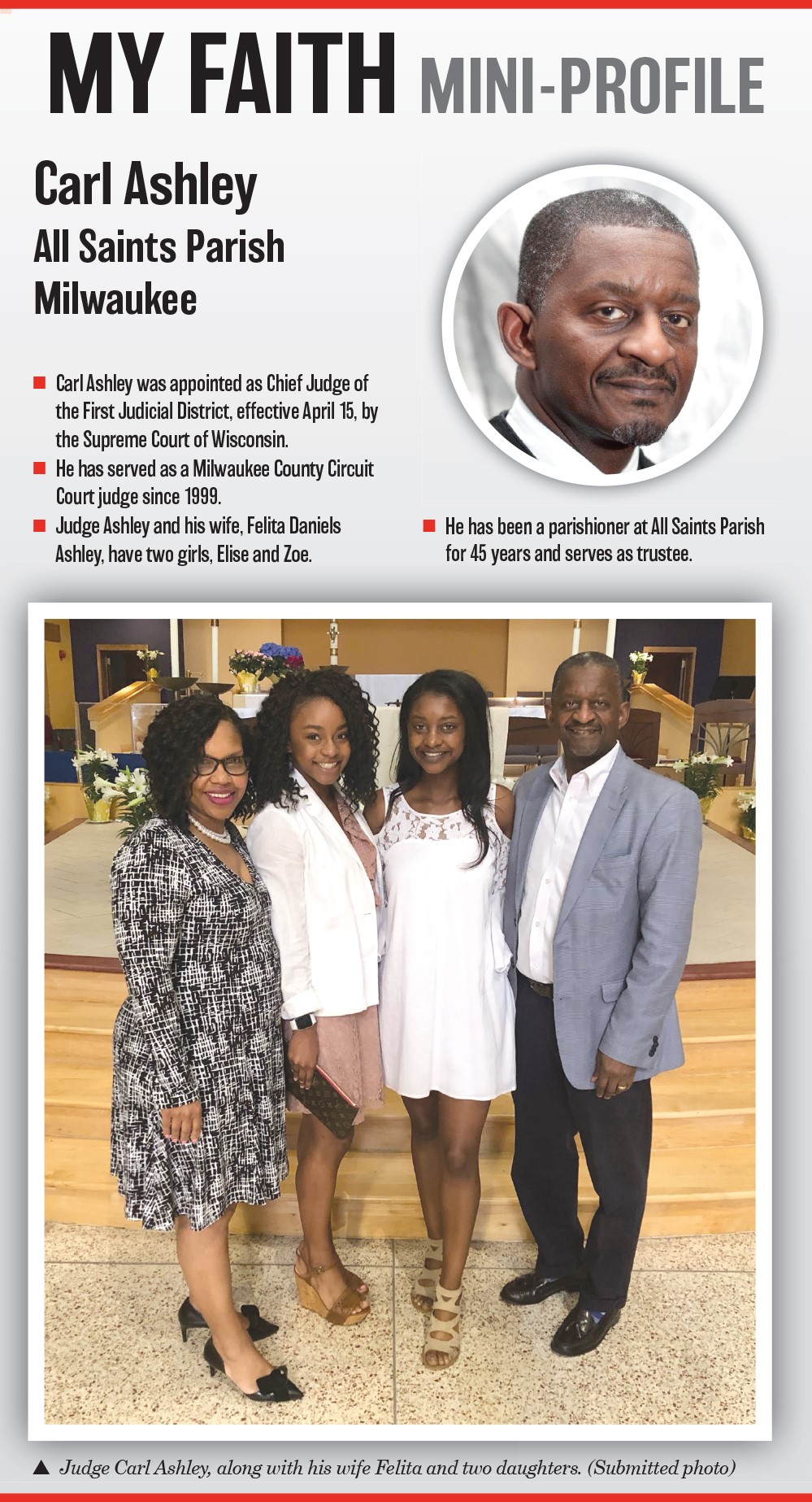Body of Christ
Forty-five years in one parish is impressive. What brought you to All Saints?
As in most cases, it’s generated by family. My mother had been a member of this church for a long time. My father passed away when I was a freshman in high school, but this was her church home. Since I was a young man, I’ve stayed there. There were periods when I was in college when I veered away and didn’t attend church regularly. But then, when I was getting ready to get married and my wife and I were both Catholic, we needed to get back and get more involved in church because if and when we had children, we wanted to make sure that they had that foundation because we had. It served us well. That little circle allowed me to get back into the Church. And now, it’s a significant part of my life.
How would you describe your relationship with your parish?
Besides going to church and being involved as a liturgical minister, being on the finance committee and being a trustee, I make sure I’m supportive of the people in that church. It’s my church home. When I make the announcements, I say, “Good morning again, Church family,” and that’s what I feel. This is my church family. At our Mass, we know everybody. If someone’s not there, you’re like, “What happened?” That’s All Saints — my church family.
How does your faith sustain you in your day-to-day life? Do you have any specific devotions?
Every time I’m at church, I spend some time after the Eucharist to thank God — when things happen that are good, I thank him for those things. And when I’m worried about something, I ask him to give me guidance and strength to deal with it — and I ask God to protect people close to me. I have a conversation with the Lord about things I’m grateful for because you don’t always ask and ask, (but) you also show gratitude for things that have happened to you. I’ve got a running list. I’m on my knees for a while.
Who’s on that list?
That’s my wife, my girls. My wife’s mother. I think of those who passed — my dad, mother, father-in-law and grandmother. Then I go through my eight siblings and then their kids. So, I am on my knees, and I say each name and take the time to specifically thank him for protecting them. It’s a ritual for me to have that conversation. I feel like I’ve missed out if I don’t do it.
You appear busier than most people. How do you still find time to volunteer in your parish?
It is a balance, I have to tell you. I was involved as a chair of the building committee when we built out at All Saints and did our reconstruction and remodeling of the church, and I can’t tell you how many banker boxes I had of information and the many meetings we had during that project. Because I was on the bench, I would have meetings but squeeze them through. You do it because you want to be engaged and provide support for the things happening in your church community. My mother gave a great example of this.
How so?
She was faithful. She was very involved in the Bible. She supported and kept us encouraged as young people. I have eight brothers and sisters. So, there was a lot for her. My dad passed away when I was about 14. She had very young ones, and she was our rock. She didn’t date or have another relationship in her life. She was dedicated to her children, and what she could do was amazing. She was a Cub Scout mother, and she did all these other things in the community — Peter Claver society and helping out with other people and always doing so much, and it just helped us realize that you can do a lot of things and multitask.
How can we, as Catholics, answer our baptismal call to treat others with justice and mercy?
Public safety is a huge thing. We want people to be safe. That’s an important part of it. So when people cross the line and endanger others, there is a place for incarceration; there is a place where people must be taken out of society to protect the community. However, we in the United States lock up more people than any place in the world. And yet, look at the violence here. There’s a disconnect. That’s one of the things that I’ve learned as a judicial officer. I’ve been in every court and sent people to prison for life without any chance of parole, but I dare say if you look at those facts and circumstances, those people should not be out again — but that’s a sliver. Ninety-four percent of people we lock up are going to get out. So, acting with mercy, we ask what we must do as a society to help them positively change their behavior. We can reasonably hold people accountable but also provide people with the tools to change that behavior so they’re productive citizens.
How do we empower people to change?
From my lens, as a society, we need to understand that we need to do more upstream to prevent people from getting into the criminal justice system because, looking at families, kids today are experiencing so much trauma. We can see our children going in a way that won’t be beneficial. If we could provide resources to those families and children to change their trajectory, that’s when we’re really going to start making things safer overall as a society.

